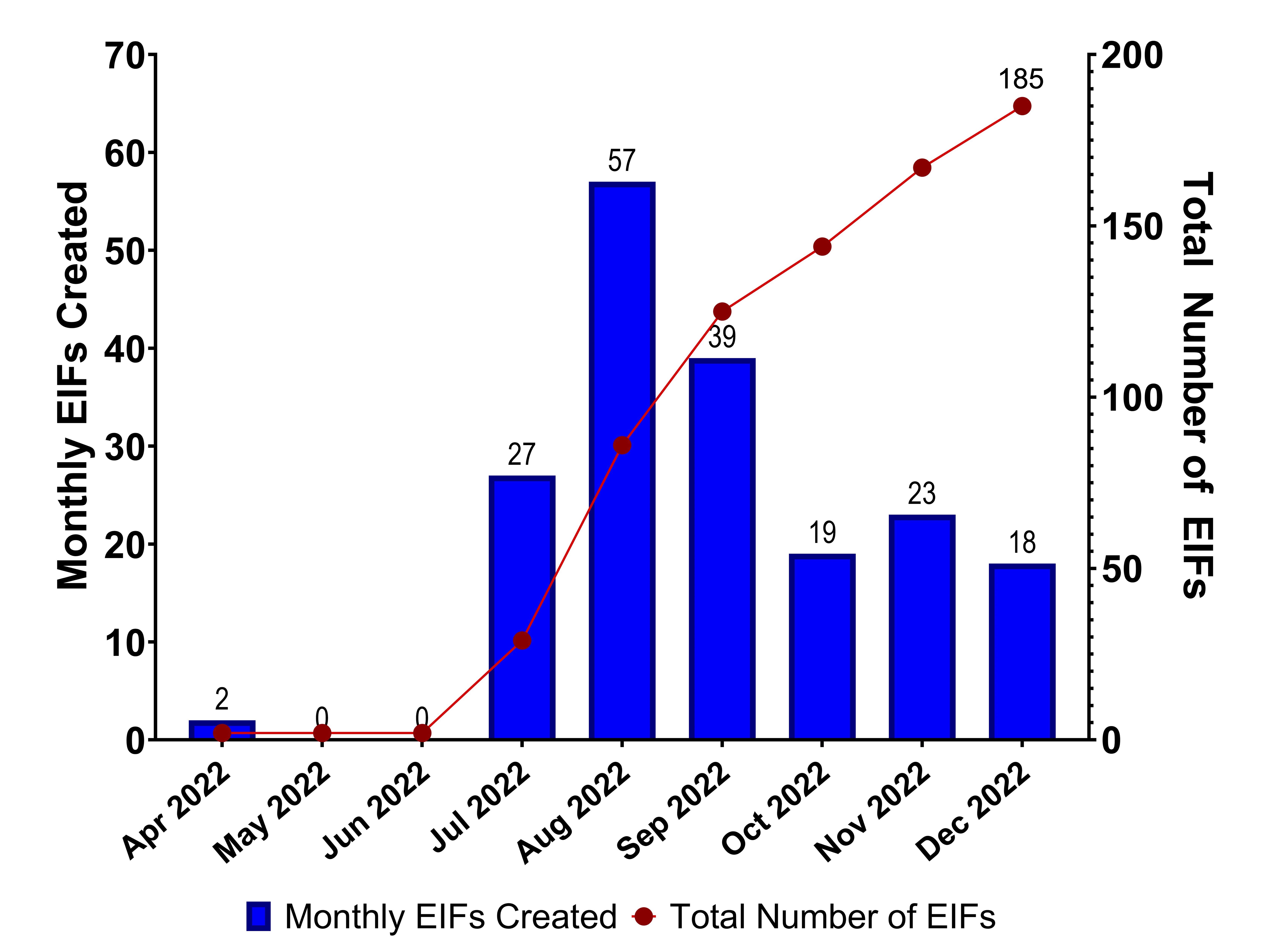Emergency Medicine: Quality Improvement
Emergency Medicine 8
380 - Improving Clinical Information Access for Children with Medical Complexity via Design and Implementation of Electronic Health Record Based Emergency Information Form
Saturday, April 29, 2023
3:30 PM - 6:00 PM ET
Poster Number: 380
Publication Number: 380.212
Publication Number: 380.212
Todd W. Lyons, Boston Children's Hospital, Wayland, MA, United States; Kathleen Huth, Boston Children's Hospital/Harvard Medical School, Boston, MA, United States; Jay Berry, Boston Children's Hospital, Harvard Medical School, Boston, MA, United States; Stacey C. Cook, Boston Children's Hospital, Brookline, MA, United States; Rebecca Hirsch, Boston Children's Hospital, Brighton, MA, United States; Megan Trexler, Boston Children's Hospital, Walpole, MA, United States; John Porter, Boston Children's Hospital, Boston, MA, United States; Andrew Capraro, Boston Children's Hospital, Canton, MA, United States; Anne Stack, Boston Children's Hospital, Boston, MA, United States

Todd W. Lyons, MD, MPH
Assistant Professor
Boston Children's Hospital
Wayland, Massachusetts, United States
Presenting Author(s)
Background: Children with medical complexity (CMC) face challenges when cared for during emergencies. Access to concise, accurate clinical information has the potential to improve care of CMC during emergency department (ED) visits.
Objective: We aimed to improve access to important clinical information via design and implementation of an electronic health record (EHR) based emergency information form (EIF) with critical information for ED providers
Design/Methods: Our project was set at a tertiary care children’s hospital with ~450 beds, a 60 bed ED and a hospital Complex Care Service (CCS) with 957 active patients. We assembled key stakeholders from the ED, CCS, and families of CMC, and used the Model for Improvement approach. Through an iterative process, we developed an EIF with clinical information identified as essential for ED care (typical clinical presentations, medical technology, contingency and disposition guidelines) and a process map for creating and updating EIFs. Leveraging the EHR, EIFs were marked as a special document with an icon appeared on the ED tracking board, providing a direct link to the EIF. Our process measures included number of patients with EIFs, number of ED visits made by CMC with an EIF, and whether ED providers accessed the EIF. Our primary outcome measures were the provider-rated accuracy of the information contained in the EIF and whether it helped expedite patient care, assessed via a post-visit survey. Intervention components included provider education, a visual reinforcement campaign, provider surveys, and regular audit and feedback of data.
Results: Since the creation of the first EIF in April 2022, 185 (19%) CMC had an EIF in the EHR (Figure) and 188 ED visits were made by CMC with an EIF. Provider surveying began August 17, 2022, with 82 surveys to date completed by providers (response rate 41%). The EIF was accessed by 34 (42%) providers. The most common barriers to accessing the EIF included: 12 (25%) providers not knowing the EIF existed, and 25 (52%) providers not knowing the icon was present indicating the patient had an EIF. Among the 34 respondents who accessed the EIF, 33 (97%) agreed or strongly agreed that the EIF contained accurate and informative clinical information, and 31 (92%) agreed or strongly agreed that the EIF helped inform and expedite care of the child.
Conclusion(s): An EIF in the EHR with an icon on the ED tracking board has the opportunity to improve care of CMC if accessed. Barriers exist in getting providers to access it routinely. However, as EIFs are added, we anticipate greater uptake.

